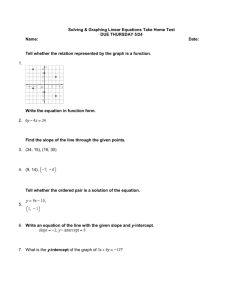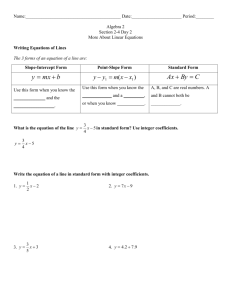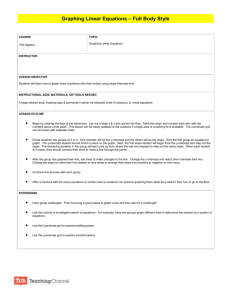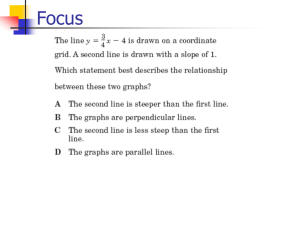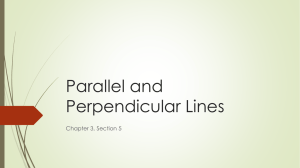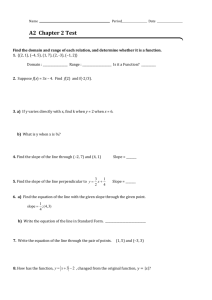KUDOs CRM3
advertisement
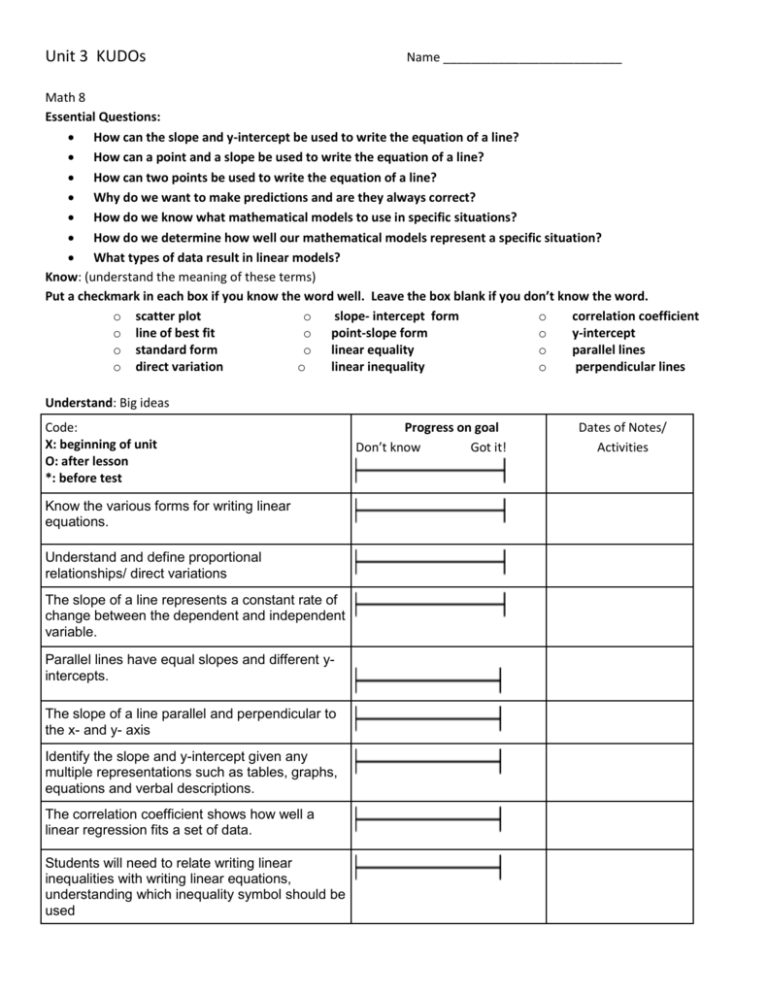
Unit 3 KUDOs Name __________________________ Math 8 Essential Questions: How can the slope and y-intercept be used to write the equation of a line? How can a point and a slope be used to write the equation of a line? How can two points be used to write the equation of a line? Why do we want to make predictions and are they always correct? How do we know what mathematical models to use in specific situations? How do we determine how well our mathematical models represent a specific situation? What types of data result in linear models? Know: (understand the meaning of these terms) Put a checkmark in each box if you know the word well. Leave the box blank if you don’t know the word. o scatter plot o slope- intercept form o correlation coefficient o line of best fit o point-slope form o y-intercept o standard form o linear equality o parallel lines o direct variation o linear inequality o perpendicular lines Understand: Big ideas Code: X: beginning of unit O: after lesson *: before test Know the various forms for writing linear equations. Understand and define proportional relationships/ direct variations The slope of a line represents a constant rate of change between the dependent and independent variable. Parallel lines have equal slopes and different yintercepts. The slope of a line parallel and perpendicular to the x- and y- axis Identify the slope and y-intercept given any multiple representations such as tables, graphs, equations and verbal descriptions. The correlation coefficient shows how well a linear regression fits a set of data. Students will need to relate writing linear inequalities with writing linear equations, understanding which inequality symbol should be used Progress on goal Don’t know Got it! Dates of Notes/ Activities Real world situations can be analyzed by linear functions and inequalities. Do: Skill or Concept Code: X: beginning of unit O: after lesson *: before test Write and solve an equation of a line in various forms given multiple representations. (Graph, table, verbal representation, a point and a slope, or a slope and y-intercept) Write and solve equations involving direct variation, and use direct variation to solve real-life problems. Use slope to identify parallel and perpendicular lines. Students use their knowledge of parallel and perpendicular slopes and their knowledge of linear equations to write an equation of a line. Write linear and solve inequalities in two variables given multiple representations. (Graph, table of values, and a verbal representation) Calculate the slope of a line when given an equation in standard form, slope -intercept form, point slope form, or any two points on the line. Use algebraic methods and technology to fit a linear function to the data and to make predictions. Create a scatter plot from two quantitative variables and describe the form, strength and direction of the relationship. Write the terms of an arithmetic sequence when the sequence is given in function form. Progress on goal Don’t know Got it! date(s) for notes page(s) from text questions I have

